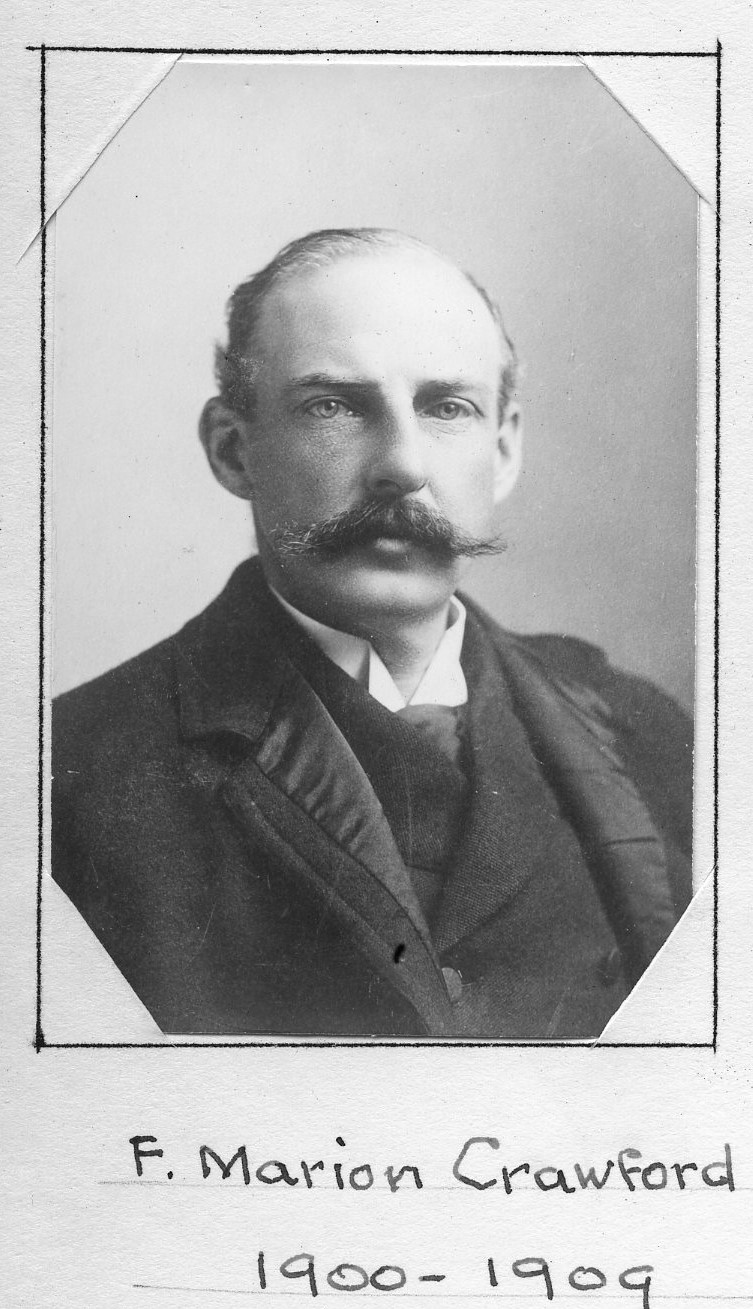Author
Centurion, 1900–1909
Born 2 August 1854 in Bagni di Lucca, Italy
Died 9 April 1909 in Sorrento, Italy
Buried Sant’Agnello Cemetery , Sant’Agnello, Campania, Italy
, Sant’Agnello, Campania, Italy
Proposed by John La Farge and William Dean Howells
Elected 6 October 1900 at age forty-six
Proposer of:
Century Memorial
Francis Marion Crawford was a citizen of two worlds. Of famous American stock he was born in Italy; educated in this country, in England, in Germany and at Rome; began his work of writing as the editor of a newspaper published in India where he had gone to study Sanskrit, and continued it as critic and contributor in two New York publications. He was proficient in twelve languages at twenty-eight and bade fair to become a scholar in comparative philology, when a weird tale of Indian things, partly true, was put in writing and instantly made him famous as a story teller. The gift was too precious and thenceforward for twenty-seven years he devoted life to the telling of tales and the writing of historical studies; forty titles stand to his credit in published works. Though his home was in Italy he was much in America and he had been one of us for nine years, a privilege he highly prized. In person he was most distinguished; tall, athletic, well appointed: in mind he was versatile, comprehensive and sympathetic: in daily life a companionable, charming fellow. In one respect he was a type, for he had that curious gift attributed to us by many foreigners of knowing them better than we know ourselves. His American tales cannot compare for insight with those in which he depicts the Anglo-Indian and the Italian. Moreover he is remarkable in his entire absence of artistic pose. He had no illusions as to his own gift, underrating it, if anything, and he was glad to be voluminous, immensely voluminous; for he seems to have grasped the secret that only in continuous, arduous, wearing toil does the occasional thought, the passage of permanent value now and then occur. The greatest writers have written thousands of pages that a hundred might endure. Hence Crawford made a business of his profession. Indifferent to scoff or scorn, he could pen six thousand words in a single day and often did so. And besides he found time for a rich, full life; a life of travel, of domestic felicity, of intimate friendships. When he passed away the Italians mourned him sincerely and the English-speaking world felt that another source of joy and cheerfulness and helpful pastime had been removed from two hemispheres.
William Milligan Sloane
1910 Century Association Yearbook

